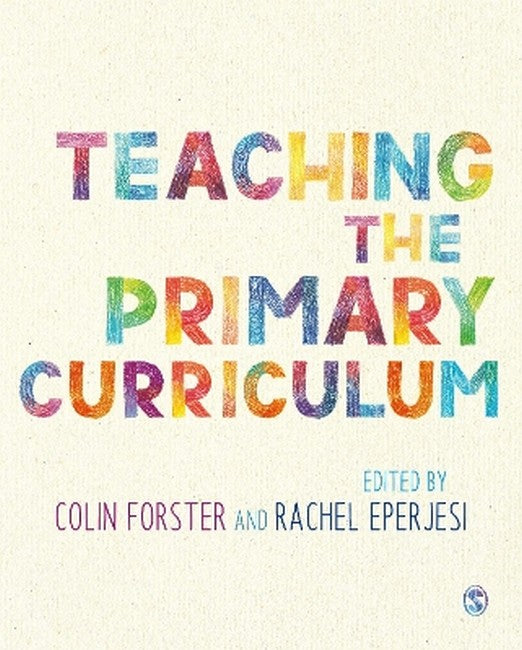Much to the surprise of anyone who meets him now, when he was a young man, Colin Forster spent two years working as an outdoor activities instructor and it was during this time that he developed an interest in education. He began his primary teaching career in south west London before moving to Gloucestershire, where he continued to gain school leadership experience. He is currently a senior lecturer in primary education at the University of Gloucestershire, where he has gained considerable experience of primary teacher education course leadership and in supporting students, at both undergraduate and postgraduate level, with research projects focused on improving practice. His areas of interest include primary science, behaviour management and action research and he has undertaken research into children's experience of homework in the primary years. Rachel Eperjesi knew she wanted to be a teacher from the age of 5. However, some rather poor careers advice led her to embark on a medical degree, which quickly resulted in her declaring it 'too messy' and she decided to follow her heart into teaching instead. After completing a BEd Hons, Rachel taught in Foundation Stage and Key Stage 1 (also quite messy) in Gloucestershire, as well as undertaking English consultancy for the local authority. She now works at the University of Gloucestershire, lecturing in primary English and professional studies, as well as currently leading the School Direct PGCE Primary course. Rachel has supported many students, both undergraduate and postgraduate, with research projects focusing on improving their educational practice.
Request Academic Copy
Please copy the ISBN for submitting review copy form
Description
Chapter 1: Introduction - Colin Forster and Rachel Eperjesi Chapter 2: Art and design: Modelling to promote creativity - Rachel Eperjesi with Alice Parkin Chapter 3: Computing: Developing computational thinking - Richard Brice and Lindsay Evans Chapter 4: Design and technology: Using real world applications - Richard Brice Chapter 5: English: Developing children's ability to form, articulate and justify opinions - Rachel Eperjesi and Tracey Wire Chapter 6: Geography: Using practical approaches to promote engagement - Joanna Rigg Chapter 7: History: Developing children's higher order thinking through historical inquiry - Kate Thomson and Tracey Wire Chapter 8: Languages: Creating purposeful communication through meaningful context - Cathy Burch Chapter 9: Mathematics: Promoting talk to develop reasoning - Ruth Hollier, Emma Howell and Jackie McNeil Chapter 10: Music: Developing collaborative skills - Colin Forster Chapter 11: Physical education: Meeting individual and diverse needs - Barbara Brown Chapter 12: Personal, social, health and economic education: Developing empathy - Jude Penny Chapter 13: Religious education: Developing children's understanding of lived experienceslived - Simon Hyde-White Chapter 14: Science: Questioning skilfully to promote intelligent answers - Colin Forster and Jude Penny Chapter 15: Conclusion - Rachel Eperjesi and Colin Forster
The chapter offers accessible practical ideas which trainee teachers can relate to. Selected critical tasks with detailed responses enables them to reflect on creating robust, inclusive teaching environments. By understanding the purpose of segmental analysis, trainee teachers have a clear focus when addressing individual needs and developing physical literacy. -- Gwenda Lappin

